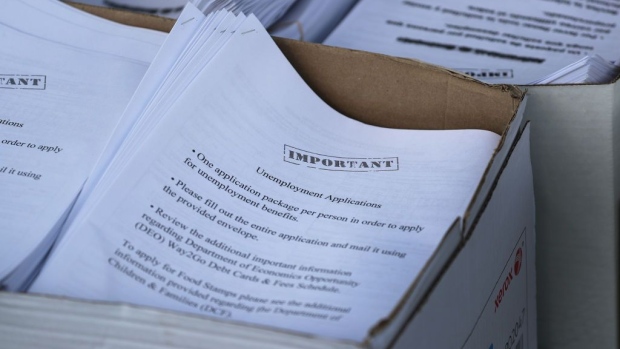Apr 20, 2021
Jobless Aid to 300,000 Cut Off Prematurely in Some U.S. States
, Bloomberg News

(Bloomberg) -- Almost one-third of jobless people in some U.S. states are getting cut off from extended unemployment benefits prematurely because of an outdated method used to determine who qualifies for aid, according to a report from the California Policy Lab.
A person’s unemployment insurance is automatically extended when jobless rates hit certain thresholds, but some states aren’t taking into consideration new programs created during the pandemic. As a result, benefits have been turned off too soon in about 300,000 instances, the University of California-based institute found in its report published Tuesday.
In the wake of the pandemic, Congress created several new unemployment programs for people who don’t typically qualify for aid, like gig workers. But many states don’t factor in these new programs when calculating unemployment rates, so workers can be overlooked when they transition from receiving regular state aid to programs that provide extended benefits.
Alabama, Maryland and Minnesota are among states that have been most affected, and in some places as many as 30% of people are losing access to aid before they should.
This problem is the latest among a slew of challenges confronting the Department of Labor during Covid-19. Also distorting jobless claims: fraud and dysfunctional roll-outs. The California Policy Lab concluded in its report that Congress should pass legislation changing how long-term unemployed workers are factored in state calculations.
Continuing claims for ongoing state benefits totaled 3.73 million in the week ended April 3, and weekly figures for initial applications remain significantly higher than pre-pandemic levels.
©2021 Bloomberg L.P.